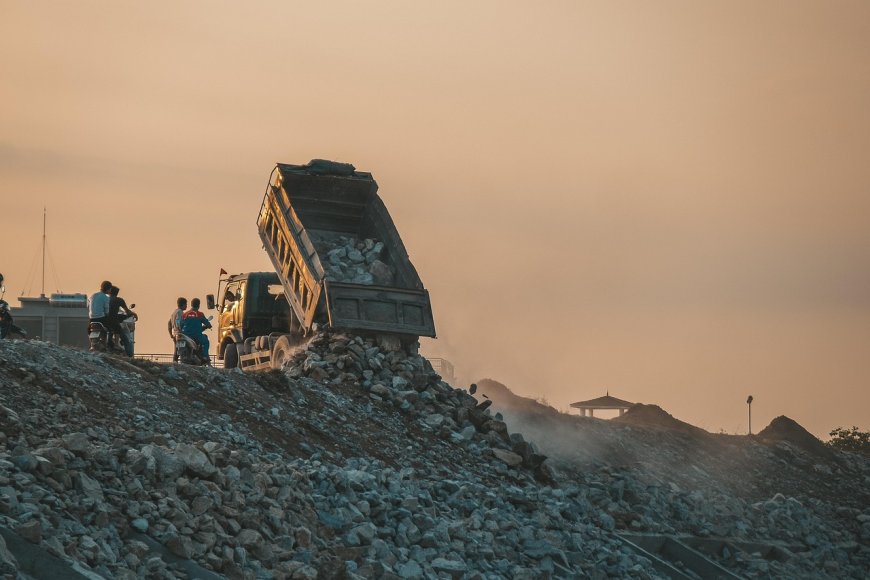MoEFCC C&D Waste Management Notification 2024: Boost to Construction and Demolition Waste Management

The revised draft Construction and Demolition (C&D) Waste Management Rules, 2024, which will come into force from 1 April 2025, have the potential to bring about substantial change in the recycling of construction debris and in the use of products made from the debris. If followed methodically, it will also ensure that extensive illegal dumping of C&D waste in low-lying areas and water bodies will no longer be a contributing factor for flooding in cities. Most significantly, the use of recycled aggregate can reduce the use of river sand, and products from recycled materials can reduce the use of virgin materials in the construction sector. In addition, if the Development Authorities start reserving dumping plots for C&D waste in locations where substantial construction or redevelopment work is expected, it can significantly reduce the distances across which C&D waste is to be transported and thereby reduce GHG emissions.
The revised 2024 C&D Waste Management Rules are based on a review of the implementation challenges faced in management of C&D waste since the first recycling plant was commissioned in Delhi in 2009. They therefore not only incorporate measures for waste management, waste utilisation and non-compliance, but also facilitate coordination amongst Ministries for monitoring the contribution of this stream of waste to circular economy and resource efficiency in the construction sector. The comprehensive revision of the C&D Waste Management Rules has created the environment for viable and efficient C&D waste management.
As per the C&D Management Rules 2016, large generators of C&D waste were required to submit a Waste Management Plan and have an Environment Management Plan before starting construction, demolition or remodelling work. The Rules now incorporate “extended producer responsibility” of the producers (construction waste generators registered on the portal for a building or building complex project having built-up area of 20,000 square metres and above) to manage their products along the entire lifecycle, including construction and demolition waste and meet recycling targets that the Government of India has committed to.
The scrutiny and monitoring of Project C&D Waste Management Plans will include actions taken for minimising the quantity of materials used and waste generated (design and technology). The State Government, Union Territory Administration, local authorities, development authorities, and the State and Union Territory Pollution Control Board or Committee will be responsible for ensuring that departments, institutes, and organisations falling under their administrative control undertake construction activities in compliance to these rules by aligning the conditions of tender documents, expression of interest, request for proposal etc. Moreover, the supporting and supervising agencies of the State or Union territories are to undertake effective monitoring for inclusion of processed waste articles and materials in the state-specific ‘Schedule of Rates’.
The waste generators and the waste producers have also been assigned responsibilities. The responsibilities assigned for contractors, service providers and authorised agencies for channelizing waste for recycling from source can have significant implications on service providers for large scale projects. However, small scale service providers such as road repairers etc. who generate small volumes of waste in individual locations also need to be assigned responsibilities for proper transfer of C&D waste by the contracting entity.
The Bureau of Indian Standards and Indian Road Congress have been assigned responsibilities to achieve material efficiency through revision of building standards and codes, use of building certification systems, green public procurement, and mandates for reuse of building materials and use of recycled materials.
An important aspect of the 2024 Rules is the development of a centralised Extended Producers Responsibility (EPR) portal/online interface by the Central Pollution Control Board for monitoring and enforcement of the rules. The registered producers, operators of intermediate waste storage facilities and recyclers of C&D waste are to enter data on waste generation, handling, storage, recycling and value-added products in the portal. The portal will therefore have data on quantum of C&D waste generation and recycling, the number of operating recyclers and the extent of use of recycled materials and products by government entities, contractors and builders/developers. Access to the data on the portal will facilitate access to information as well as research.
The mandate for utilisation of processed waste is to be implemented in all construction activities having built-up area of 20,000 sq. mts. and above, and road construction. The waste utilisation framework is to be implemented through the online portal with mandatory registration of recyclers and occupiers of the construction or reconstruction or road construction projects. While the local authority or development authority (implementing agency) will be responsible for implementing the waste utilisation framework in its jurisdiction for construction projects through the portal, the Central Pollution Control Board and State or Union Territory Pollution Control Board or Committee shall monitor the implementation of the waste utilisation framework under their jurisdiction.
An important Clause is on the Urban Development and Municipal Administration departments of the State or Union Territory Administration etc. to support local authorities in identification of sites for intermediate waste storage facilities and processing at local or regional or cluster levels and monitoring implementation of these rules. The strategic identification of these sites in upcoming areas with new developments or redevelopment can reduce the carbon emissions by minimising distances to which C&D waste has to be transported.
The other two significant Clauses in the 2024 Rules that can have a huge impact on achieving resource efficiency in the building and construction sector are on the Ministry of Commerce and Industry facilitating the listing of processed waste articles on Government e-marketplace, and on the Ministry of Finance exploring fiscal measures to increase competitiveness of recycled waste material vis-à-vis virgin construction materials.
Thus, the effective implementation of the 2024 C&D Waste Management Rules can have a huge impact in India.
 |
Dr Sharadbala Joshi |
 |
Prof Dhaval Monani Associate Professor, Director, Affordable Housing, Anant Centre for Sustainability, Anant National University |







